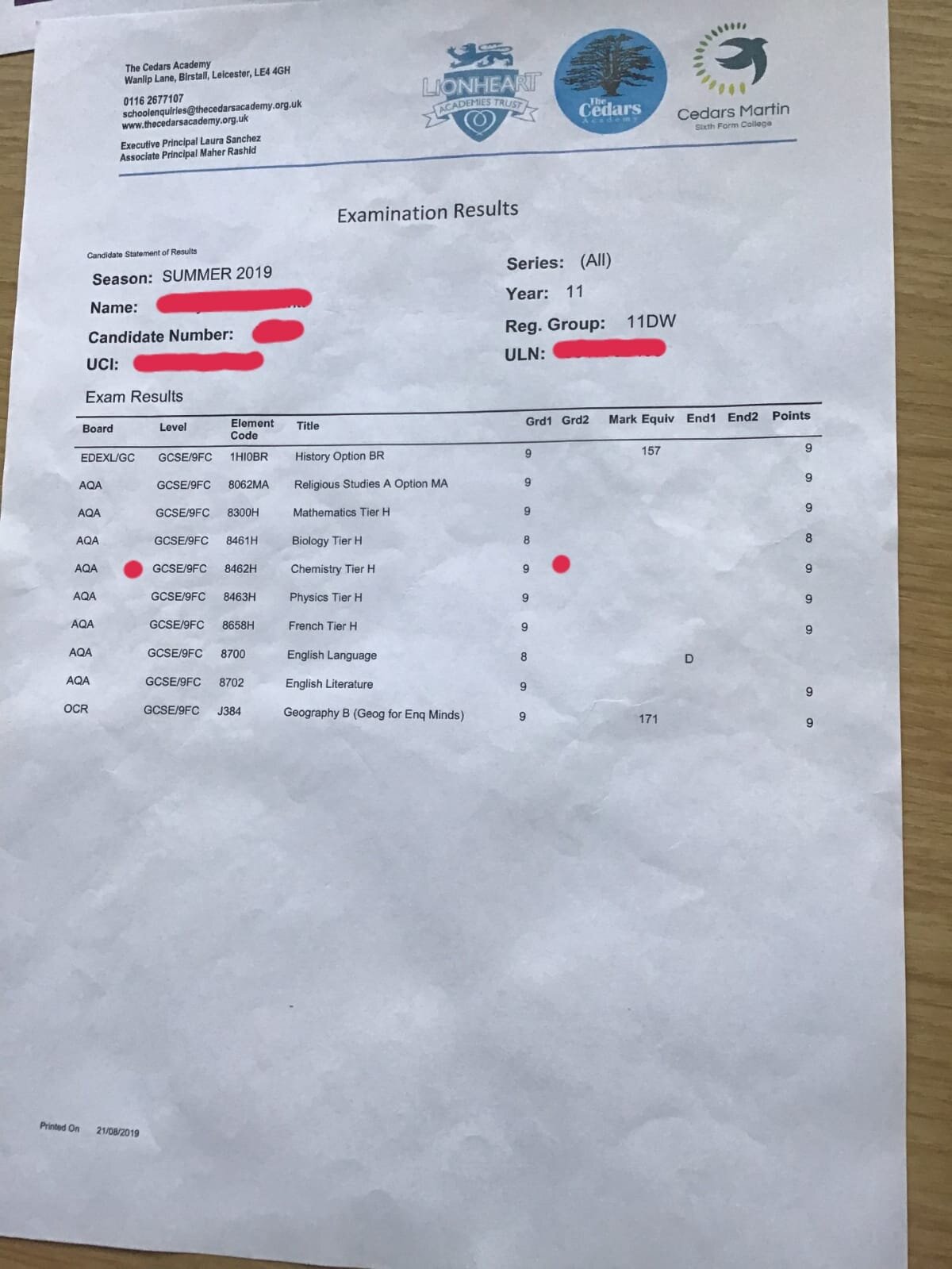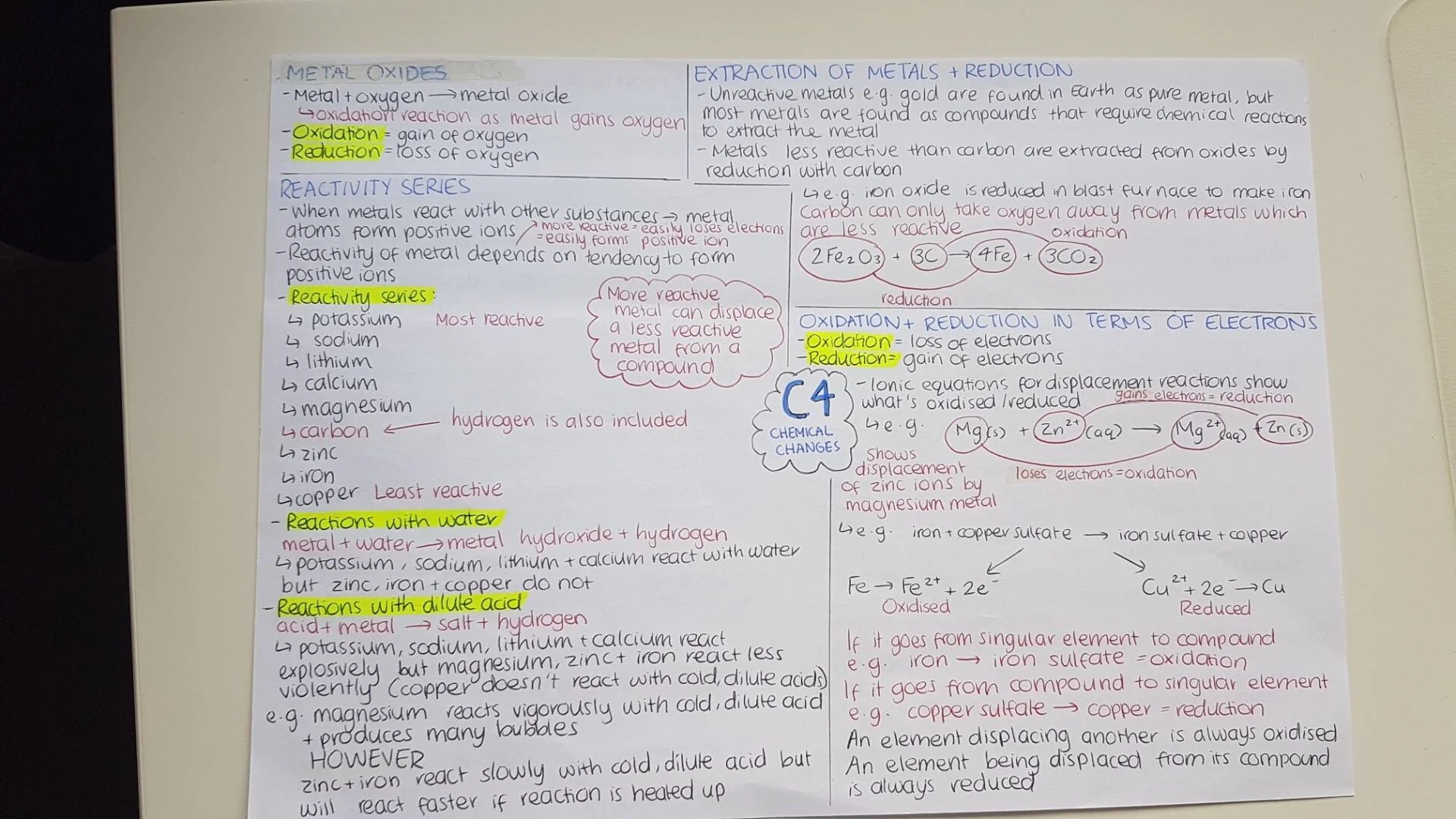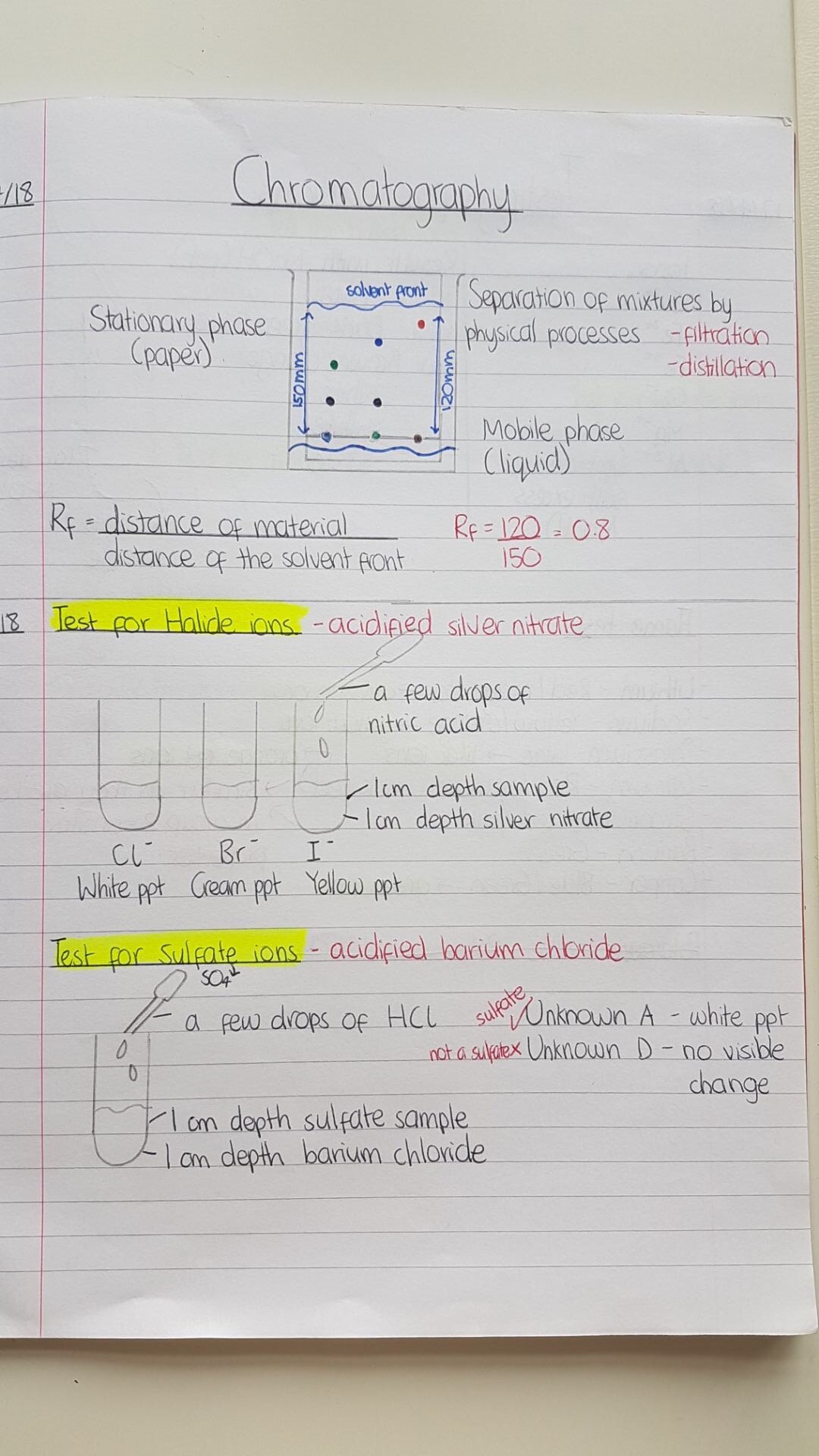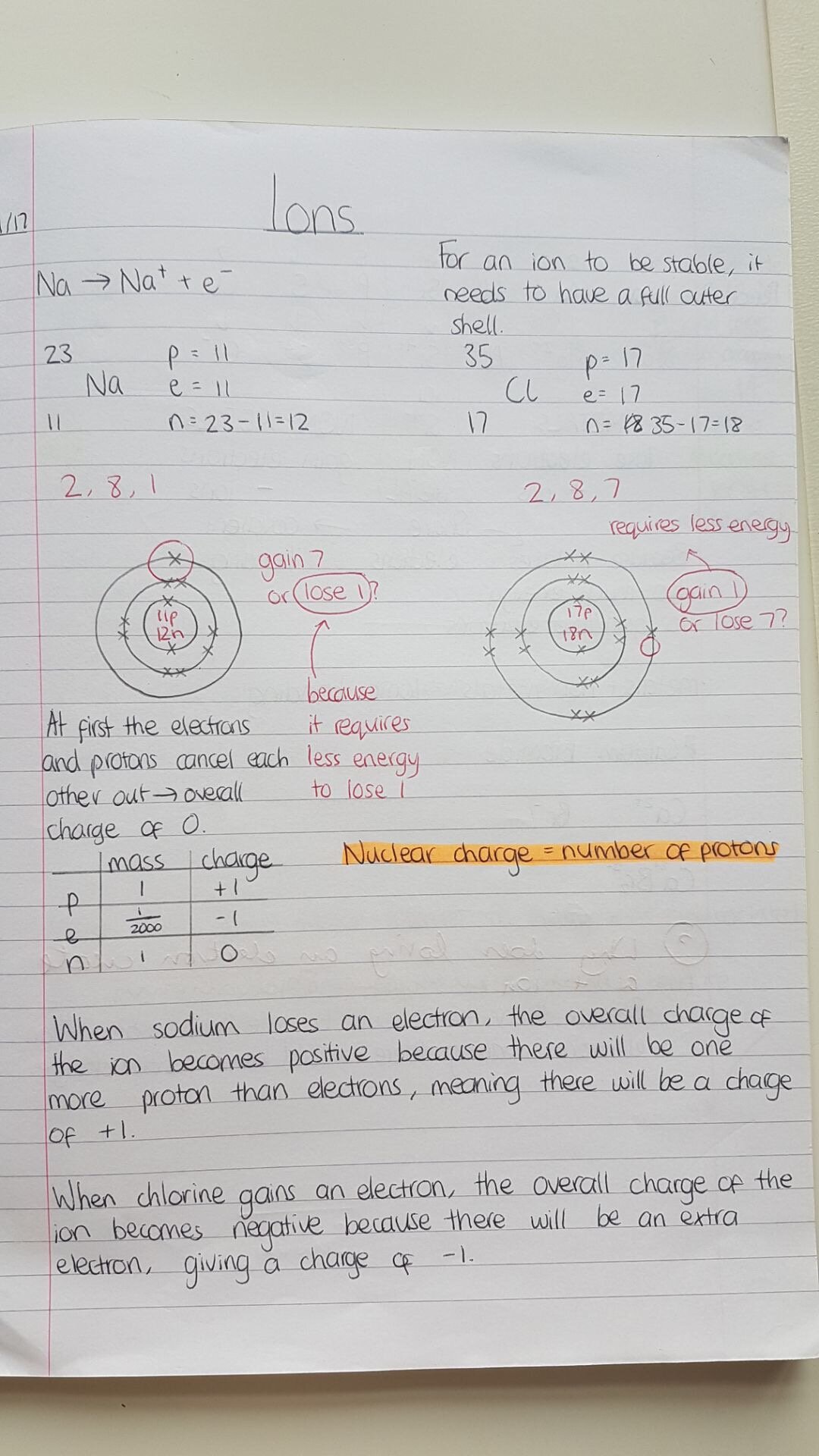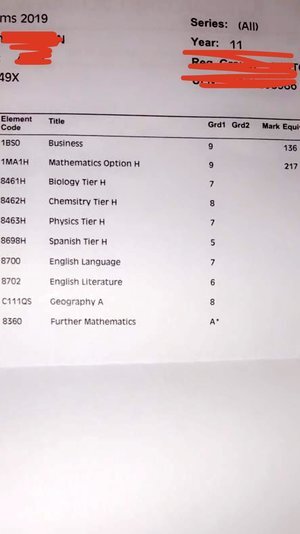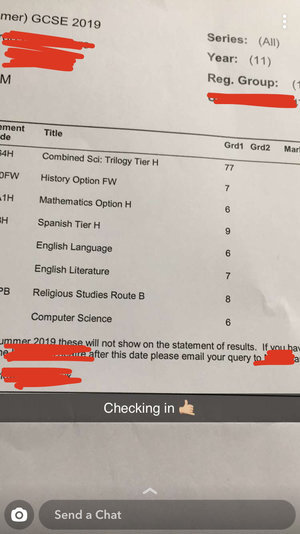Background
Arguably THE hardest subject out there, let alone the hardest science, Chemistry, when understood, can be very rewarding, but also painfully confusing when misunderstood.
For me the hardest aspect of Chemistry was actually getting my head around some of the concepts.
For starters:
Trying to visualise the volume of gas chlorine occupies at room temperature
Figuring out how many moles of sodium hydroxide are needed to neutralise an acid
What does it mean by a strong acid releasing H+ ions when dissolved in water?
What I soon realised is, to achieve the highest grade (9) in Chemistry and GCSE, you DON’T have to wrap your head around these concepts completely.
I was never a science type of person, but enjoyed learning some topics, and Chemistry was the most interesting. I often revised some Chemistry topics through enjoyment. Maybe that was due to my learning type and because I enjoy understanding concepts and applying them.
A lot of people dislike the subject and it’s easier said than done, but sometimes you have to force yourself to develop an interest. So try to see if you can find at least one thing about the subject which you can take an interest in.
Classwork
For year 11, I only filled around half of my workbook, which was unusual when compared to other subjects. But that’s because our Chemistry classwork was largely based on worksheets rather than notes from textbooks.
My main approach to classwork would be a reverse technique. I would read up on the topics beforehand, and then go into the lessons already having some understanding of the topic. I found this incredibly useful for a subject like Chemistry. Whilst most of the people in the class failed to grasp complex ideas, I would already be at an advantage as my prior reading placed me into a position where I could grasp (at the very least a little bit) of the idea and then further develop my understanding throughout the class.
The Revision
The Chemistry specification is split up into 2 papers, so my revision was mainly based on topics for each paper.
—
As you can see above, mind maps on topics were very useful for allowing me to summarise my general understanding as well as working out the areas where I lacked knowledge. For the December mocks, I had to revise for paper 1, and this allowed me to complete my revision notes (mind maps, flash cards and exam questions) early, they would then later be used in May for the actual paper 1.
Paper 1
For paper one, I placed more emphasis on topics such as quantitative Chemistry and energy changes, as I found that those topic areas would feature some of the more difficult questions. If you are taking higher triple chemistry, then it is a MUST that you can understand and apply the different quantitative equations, namely:
The mole equation
Number of moles = Mass(g) of element/Mr of element)
The concentration equations
Concentration = number of moles/volume of solvent
Without doubt, you will need these so get them sorted early!
👆Some revision notes on Chromatography, Ions and Moles
Paper 2
For paper 2, my focus was largely on two topics:
Topic 10 - using resources
Topic 6 - the rate and extent of chemical change
I chose topic 10 because it is a very large topic and although much of its content appears quite generic (recycling and reuse, finite resources etc) a lot of pupils fail to realise that topic 10 contains some niche areas such as ceramics, composites and polymers. Many students struggled with this topic last year, as they overlooked the complexity and detail. So definitely get to grips with that topic!
I focussed on topic 6 because it contains the hardest part (in my opinion) of GCSE Chemistry: Reversible reactions and Le Chatelier's principle. Without fail these questions will come up on the higher paper, and the question type for reversible reactions will always be relatively similar, as there are only so many ways of asking about the area without reaching A level Chemistry territory. Make note of the point you’re at on the specification as you have a lesson, why not even print it off and bring it into class. Whatever you do, make sure in some way that you have access to it. Here’s a link to the course specification.
My main revision resource was using CGP’s guide to GCSE Chemistry. This included the revision guide, the follow up question booklet, follow up question booklet with Grade 8/9 focus and CGP’s own revision cards.
As well as regularly using those resources, I had subscribed to the website - My GCSE Science. This provided me with access to revision videos on each and every topic for all the sciences, as well as quizzes and exam questions.
Finally, a resource I’d highly recommend is Quizlet; a quick easy quiz platform which helps you learn key concepts and definitions via active recall. Here’s a good video to watch if you don’t know what active recall is.
On the whole, I’d say I probably did a couple of hours of revision a week, a few months before exam season. Everyone works differently, but if you have a revision schedule that works, whether it be 3 hours every evening or just 30 mins on a Saturday, then good on you.
The Exam
My strengths going into the Chemistry exam, or science exams as a whole, were that I knew the syllabus and revision guide well so I could easily understand which topic each question was referring to.
However, one of my biggest weaknesses was often misreading or overlooking the specific intent of the question. I’d sometimes begin answering the question and writing about a topic without being exactly clear on what the question was asking me to do. As a result, I would always reread each exam question at least 2 or 3 times to make sure that my understanding was sound.
I did as many past papers as there were available to me, this included all those on the AQA website.
What I found most useful was completing the 6 mark questions that all Chemistry papers include. Many students find 6 markers daunting and fail to develop a solid approach not knowing what terminology to use to hit the mark script. Past papers really helped to develop my technique for answering 6 markers quickly and effectively.
The real exam went surprisingly well. The last question on paper 1 was a 6 marker based on titration calculations. This question was a breeze in the real thing, because as I mentioned earlier, my focus on the quantitative topic areas made these type of questions very accessible.
The paper 2 exam had plenty of questions from organic Chemistry, and sneakily featured a paper 1 topic, as well as the infamous topic 10: using resources. I left the exam very pleased with my performance, especially in relation to the topic 6 questions on reversible reactions/haber process, which I had anticipated prior to the exam.
Summary
For science exams, I broke the subject down into two main parts:
Knowledge of content
Application of concepts
If these fundamental principles are mastered, then you can’t go wrong.
Knowledge of content: You must use the specification as your compass; you must know each topic inside and out, to the extent where you feel confident enough to teach another pupil. Revise regularly and the content will stick, but this won’t guarantee success.
Application of concepts: You need to know how to apply the knowledge you have acquired. Practice exam questions are the best form of application, and they prove if you really know what you’ve learnt.
With that in mind, Chemistry can be broken down into a very accessible subject, in which any student can succeed.
Want some more help from The Exam Coach this year?
Online Exam Preparation Bootcamp
Learn how to prepare for your GCSE and A Level exams like the top performing students in the UK 🇬🇧
Improve your grades by one and a half grade boundaries (on average).
This audio programme will make you:
More disciplined
More motivated
Revise faster and better
For a limited time only, we’re offering you an 80% discount on this course!
Enter discount code BOOTCAMP at the checkout (available for a limited time only). Take a look and find out more about the Online Exam Preparation Bootcamp by clicking the button below.

